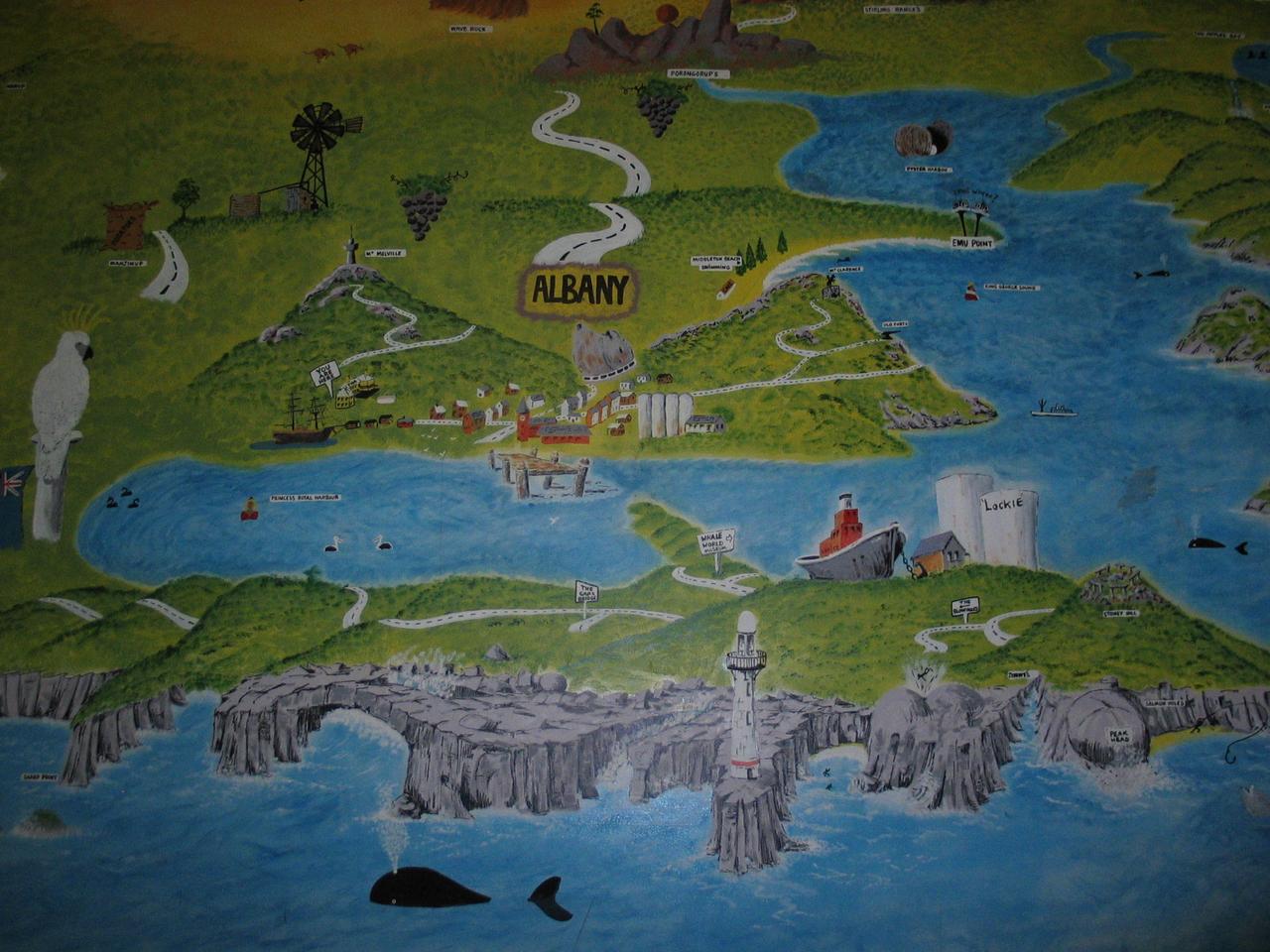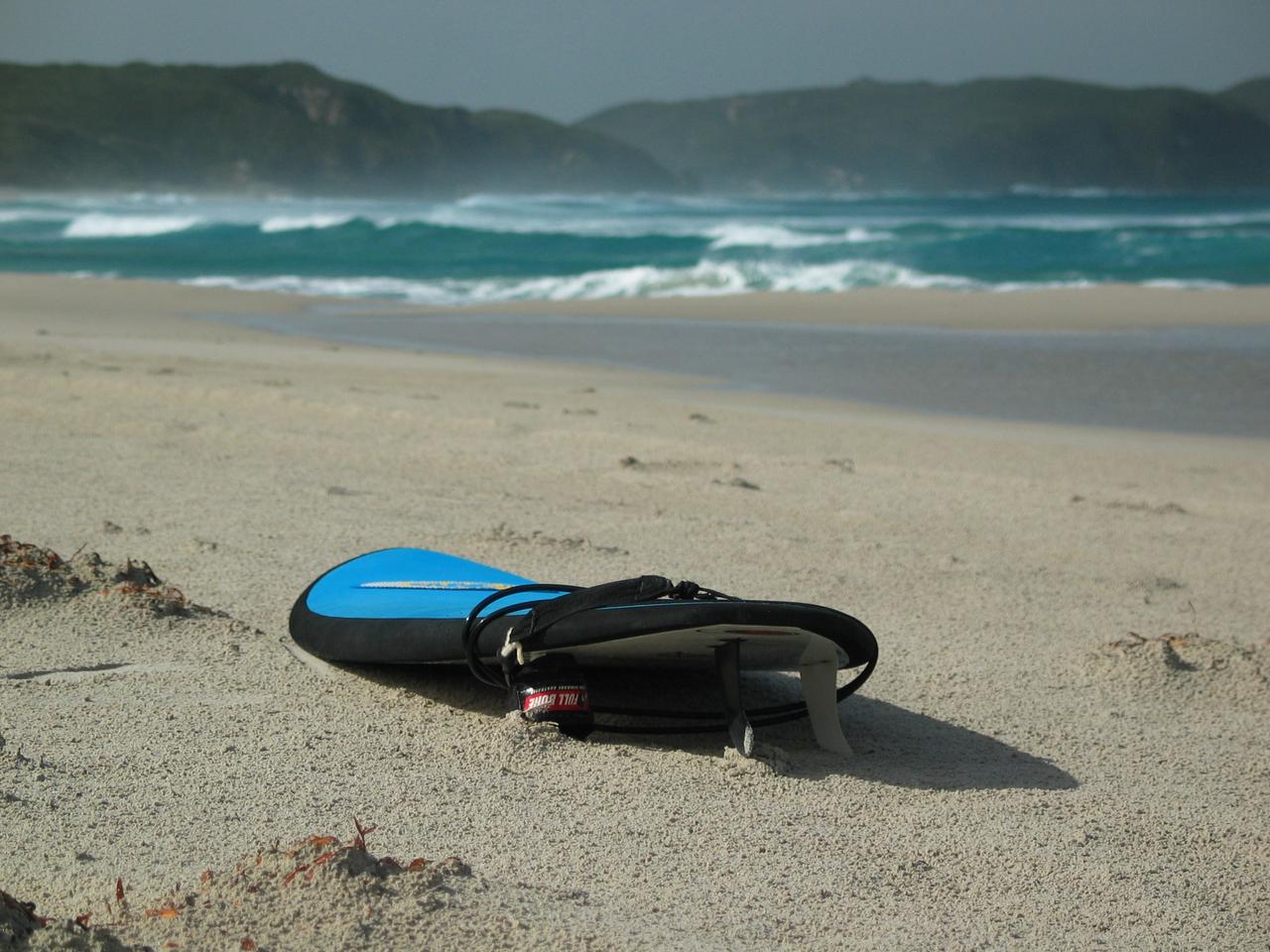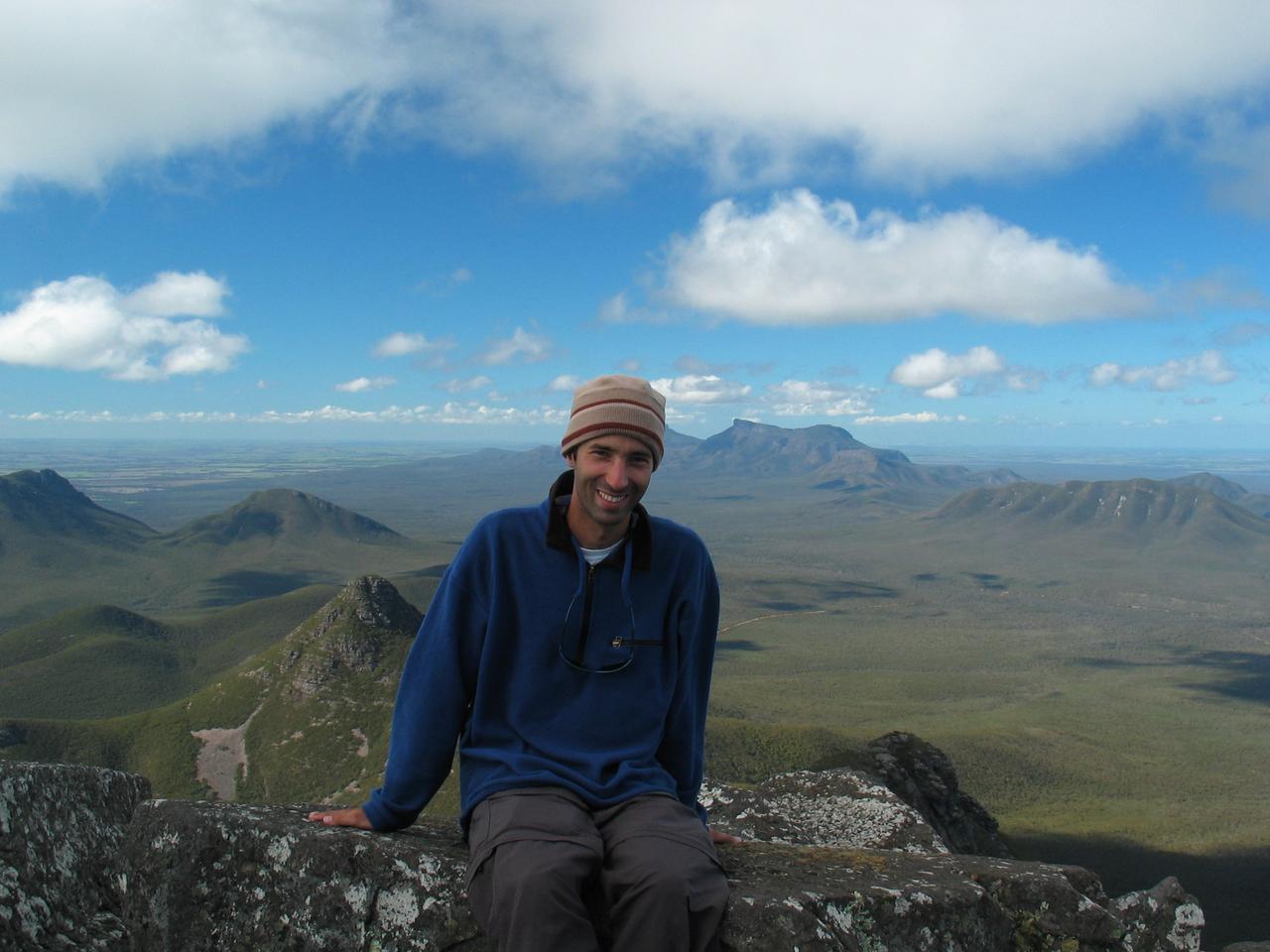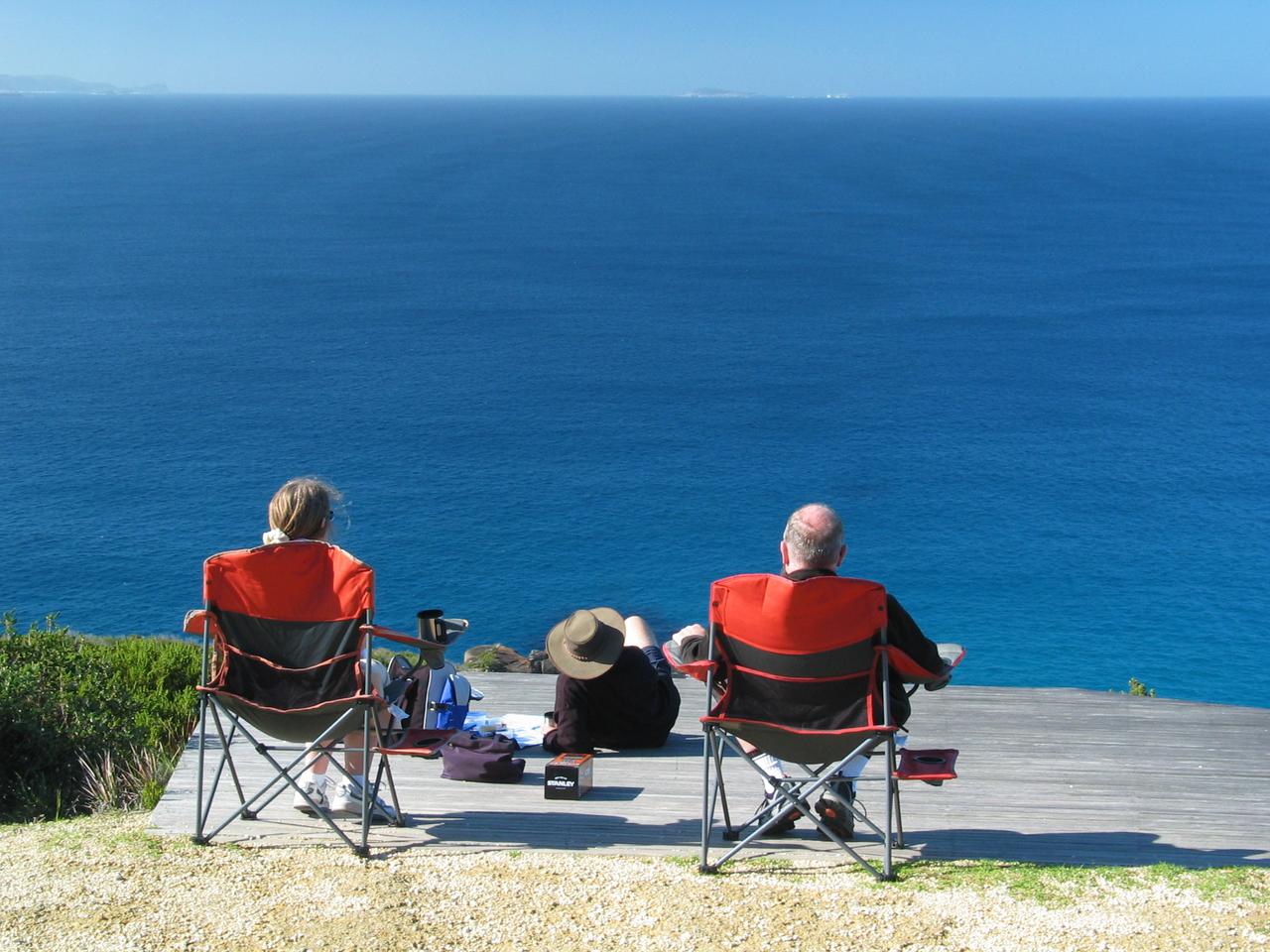The Second Perth Report
How yer goin’ mates?
In this chapter, our adventurous traveler is attacked by blood-sucking parasites, ponders the role of Jesus in his life, and becomes disenchanted with Fiji without ever setting foot there.
Albany
Since the last report, and for nearly two weeks, I’ve spent my time in and around the town of Albany (I arrived back in Perth just today). It’s got to be the most pleasant place to live that I’ve ever seen (it’s a record that’s been breaking frequently since we arrived in south west Australia). At 20,000 people, it’s the third largest city in WA. The town itself is very scenic and tidy. There are two natural harbours, where whales sometimes come to visit (I didn’t get to see one myself, just dolphins, so I ate fried shark instead). There are at least seven national parks and nature reserves within an hour’s drive, and there’s the usual collection of wineries, beaches, forests, galleries, historic sites etc.

I was staying at the local youth hostel (a curious label, as many of the guests were over fifty). The hostel has two big advantages - Pete and Kathy, the owners. It was such fun to stay with them that I hardly felt the days passing. It’s the first time I’ve ever stayed at a hostel for more than a few days, and considering that other people have also set up camp there for long periods, I got to know a few of them better - like the woman who left England to look for a place to settle in Australia (and has been looking for twelve years now), the English bloke who works as a plumber, the woman who was a cadet in the Royal Australian Navy, the retired guy who’s “resting” in Albany after walking the Bibbulmun track from end to end (963.1 km total, 20 km a day on average, whew).
I was sorry to leave, though eventually I managed to get myself to move on. Kathy, on the other hand, was so glad to be rid of me that she gave me my last night’s stay for free :-) This is one place I’ll definitely want to go back to sometime (now that we’ve got New Zealand out of the way).

Insights 1
I’ve recently gained a better (though not complete) understanding of two subjects that have troubled me for a while. The first is Aussie Rules football. I sat through a game and got answers from someone who knows.
The game is played on an oval field, with an oval ball. On each end of the long axis of the field there are four tall posts in a row. If you can kick/push/run with/throw the ball between the two middle posts on the opponent’s side, your team gets six points (a “goal”). If you get it between the two right-hand or left-hand posts, you get one point (a “behind”).
If somebody kicks the ball and another player (from his team or the other) catches it straight off the air, the receiver gets a free kick. Therefore, the game’s most dramatic plays are often not the goals but the assists. If a player holding the ball is tackled and falls, he has to get rid of the ball immediately - if he tries to hold on to it, the other side gets a free kick. Because of this, the game rarely stops when the player is tackled, and it flows faster than rugby (which in turn flows a lot faster than American football).
There aren’t many restrictions on what can be done with the ball, or with a player who has it. Some brutality is allowed, even encouraged. Protective gear is unheard of, except for mouth guards. Serious injuries are not unheard of.
Insights 2
Another thing that had Dana and me flustered for a long while is the dishwashing method used here. We’ve seen it done by the Kiwis, Aussies, Brits and Europeans, so I guess it’s pretty standard - which doesn’t make it any less weird in my opinion. Here’s how it goes:
- Fill up the sink (or a small tub) with warm soapy water.
- Place all dishes in the water.
- Take out each dish in turn and scrub it to remove any bits of dirt.
- Wipe the dish with a towel and put it back in place.
The missing part here is, of course, the one where you wash off the soap with water, so that it doesn’t end up half still on the dishes and half on the towel. This omission doesn’t seem to bother anyone, except me. I sometimes wash clean dishes with water before using them.
The Trouble with Fiji
I’ve long planned to use this trip to see one of those Tropical-Pacific-Island-Paradise places. The question is which one. There are quite a few, but the choice is more limited once you cross off those which are ridiculously expensive, inaccessible, tiny and/or unsafe. Of the ones that remain, the cheapest and probably the most interesting is Fiji, so I decided to go there. However, after reading more about it, I had second thoughts.
Most visitors to Fiji stay within the tourist resorts, and only leave them on organized tours. There’s nothing wrong with that, and they normally get back home immensely happy, but it is a kind of ghetto and not what I’m looking for.
According to the Lonely Planet guide, once you leave the resorts, things get a bit tricky.
Village visit procedure - Fiji:
- Find someone outside the village and ask them to take you to the chief.
- Give the chief a gift. The standard gift is a portion of kava (something they make a drink out of), which weighs half a kilo and costs $5-10 US.
- The chief conducts a short ceremony, to ensure that the ancestor spirits have no problem with you visiting the village.
- You can then look around - with a guide, who’ll make sure you don’t step in any sacred areas.
For visiting any other place (a beach, a lake, etc) you need to ask permission in the village that owns the land, but no ceremony is required.
Dress code - Fiji:
- No swimsuits except in the tourist resorts, even if you’re swimming.
- Both men and women should wear clothes that cover their shoulders and cover their legs to below the knee (again, this still holds when you’re swimming).
- Wearing a hat and/or sunglasses in a village is extremely rude.
Lonely Planet - on Fijians:
While indigenous Fijians seem very laid back, their complex codes of behaviour are fairly strictly followed. As a foreigner, Fijians will generally forgive your gaffes in social etiquette; however, you’ll get more out of your experiences and are far less likely to offend people if you are aware of local customs.
Lonely Planet - on Suva (the capital of Fiji):
- Don’t eat the fish - the sea is polluted.
- Don’t walk outside at night, even in groups - it’s not safe.

Surely it’s not as bad as the guide makes it sound (and they certainly had no intention of scaring people away from Fiji), but I don’t like it. I like traveling in places where you can go where you want, make your own decisions and schedules (then change them twice a day), without having to worry about being attacked/harassed/stranded/offensive to people (as my friend and inspiration Ori would say, “Ein sechel ein de’agot” (no brains no worries)). By the way, that’s why I feel that Australia and NZ are such great places to travel. We speak the language, we dig the culture, the infrastructure is all there, and no one expects foreign tourists to be accompanied by a guide, a driver, two beasts-of-burden and a chef.
So anyway, I changed directions and I’m going to the Cook Islands (sometimes called Rarotonga, or Raro, after the main island). It’s a much smaller place, and a bit more expensive, but it sounds much easier and more friendly.
Village visit procedure - Cook Islands:
- Show up.
Dress code - Cook Islands:
- Keep you bum covered, and preferably some of the upper legs too.
- Women are supposed to wear hats while in church. But tourists don’t have to.
- You can wear flowers anytime except in church.
Lonely Planet - on Cook Islanders:
Don’t stress yourself too much about behaving correctly in the Cook Islands. Cook Islanders, particularly on Rarotonga, are sophisticated, modern people. Tiptoeing around them like they’re made of glass will only bring on howls of laughter and encourage them to have you on [play tricks on you].
Lonely Planet - on Avarua (Capital of the Cooks):
Watch out for annoying dogs who like to chase anyone riding a motor scooter.
What’s Next
I still have one more “mission” here in WA, which will take a few days. After that I’ll go to Rarotonga for a few weeks, and then fly home - which will also take a few days since it’s five flight segments and Gawd knows how many hours in the air. I plan to be home early in July - you have been warned.
Say What?
I liked the sound of the opening paragraph in this report, but there’s not much to it. The parasites are Kangaroo ticks, which assaulted my clothes in the Stirling ranges one day. Fortunately, they didn’t find any flesh and I believe I got them all off (wait, what’s that thing on my neck?? AYEE!!!)
The Jesus part refers to a very friendly group of devout Christians who I had morning tea with one day. They were curious to know what I, as a Jew and an Israeli, think of the teachings of Jesus, what happens after death, the survival of the Jewish people and the role of God in the founding of Israel, etc. I explained that unfortunately for them they’d stumbled upon a hopeless godless agnostic, and I tried to present the prevailing opinions as well as my own.

Last Thought
From an Australian perspective, this year’s Eurovision contest looks completely hilarious - even more so than usual. They did a summary of it on Rove Live (an excellent local adaptation of the Jay Leno concept, unlike the crappy one that Gidi Gov does) and everyone in front of the TV was gagging with laughter… What do you think?
Till later,
- Ron